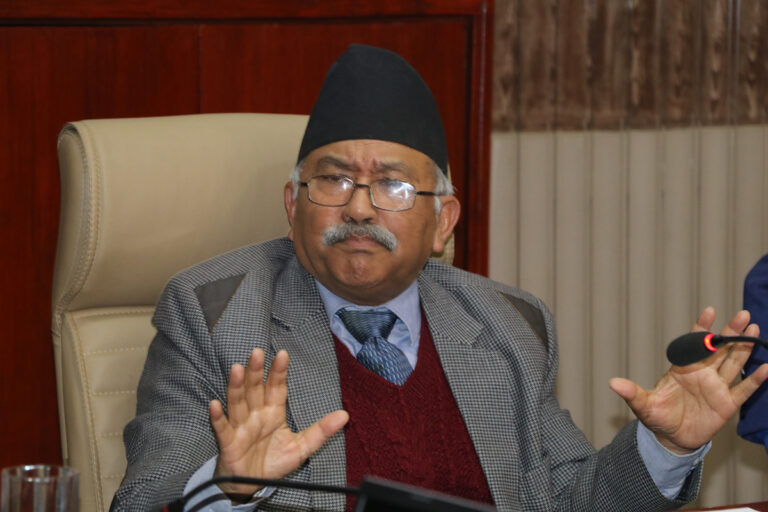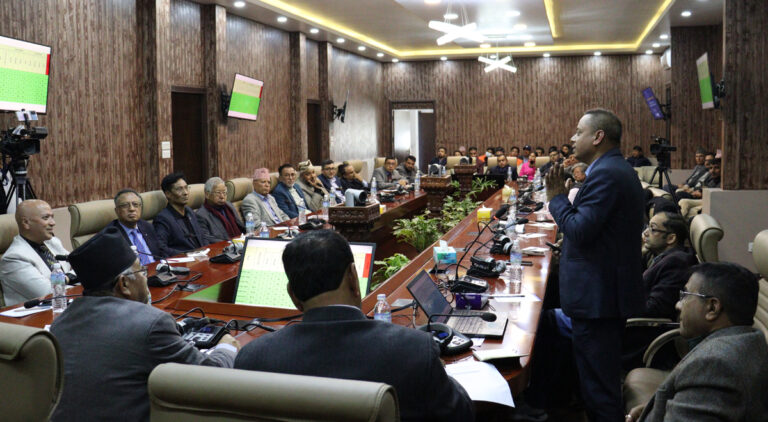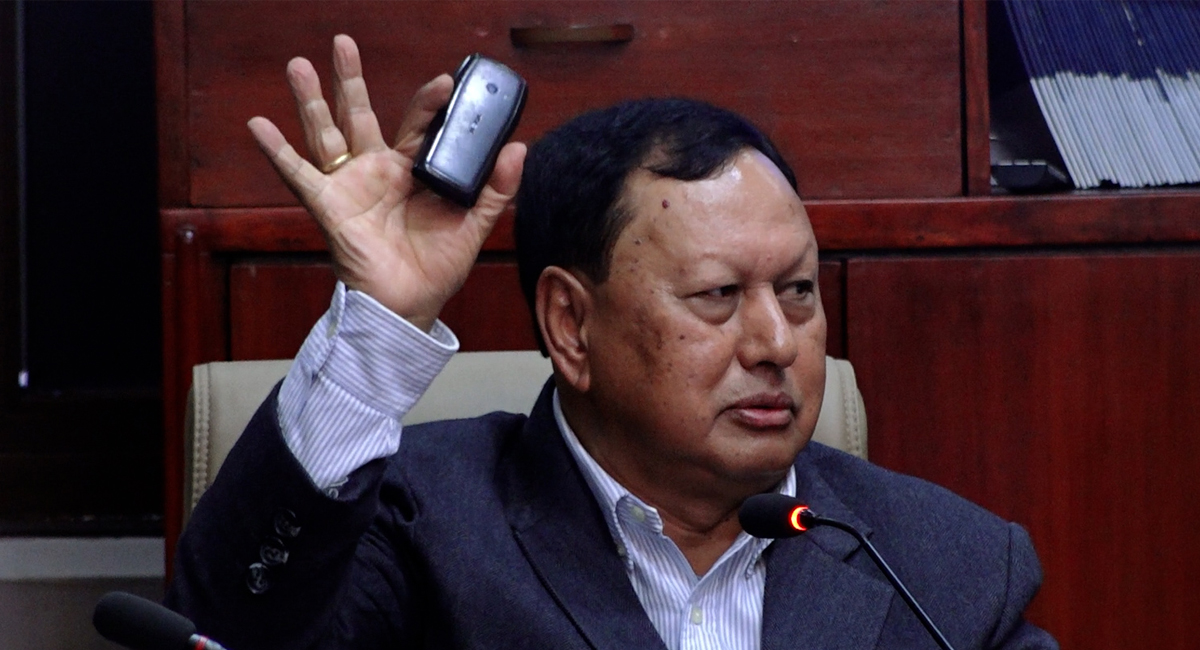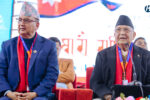KATHMANDU: Nepali Congress (NC) leader Mohan Bahadur Basnet, an elected MP from Sindhupalchowk and a former Minister of Health and Population, has become known for his choice to carry a ‘feature’ (old-fashioned) phone instead of a smartphone.
During an interaction program on “Social Media and Internet Addiction” held at the Pavilion Hall in Durbarmarg, Basnet explained why he prefers using a basic mobile phone over a smartphone.
“I am not the only one who says I don’t look at my phone for more than two hours,” Basnet remarked.
He then pulled out a small feature mobile phone from his pocket to show the participants, stating, “Look, I carry this kind of phone.”
Although Basnet is certainly capable of purchasing a smartphone, he has opted for a feature phone due to his struggle with social media.
He shared his thoughts on the matter, saying, “I am a person who can board a bus, a bit aggressive in nature, but I did not do it because I am on the bus. I have even served as Minister of Communications, but I couldn’t make this change. If you look at my phone, I have been using this simple mobile.”
Basnet went on to explain how his small phone helps limit his use of mobile technology, even during sleep or meetings, where larger screens tend to tempt him to engage more.
“I carry a small mobile, and many people criticize me for it. I keep another mobile in my bag and use it occasionally for photos,” he said.
“I’ve made a firm decision not to ‘entertain’ on social networks, except on my iPad. I’ve resolved not to look at my phone for more than two hours a day.”
Reflecting on past commitments, Basnet shared other resolutions he had made.
“When I was studying, I had said, ‘I will not watch more than a certain number of films,’” he said, recalling how he used to run away from cinemas despite being invited by people from his district.
Similarly, he mentioned that he had promised not to run for any office until the multi-party system was introduced, and true to his word, he did not contest any elections until that change occurred.
Basnet, who became an MP at 41, also shared his journey of political involvement and personal promises, such as delaying marriage until he became an MP.
“I have fulfilled my commitments, but I haven’t yet stopped using my phone excessively.”
Concluding, he stated that social media has now spiraled out of control and is causing significant distortions.
“We have become a society that harms itself. People are mentally affected, and if we cannot control this, we risk the country’s development and change.”
Experts warn of growing internet addiction risk
At the same event, experts raised concerns about the increasing risks of “Internet addiction” and cyberbullying.
The program, organized by the Rotary Club of Kathmandu and Institute for Strategic and Socio-Economic Research (ISSR), discussed how social media and internet abuse could lead to severe social, mental, and even criminal consequences in the future.
Former Chief Justice Kalyan Shrestha, speaking at the program, emphasized the need for responsible and safe use of social media: “We have no choice but to use social media responsibly and safely. It’s crucial to pay attention to this issue.”

Shrestha highlighted that the use of social media is having a significant impact on various aspects of people’s lives, including their mental and social well-being.
Former Chief Secretary Shankar Bairagi acknowledged that while social media usage is crucial in today’s world, it is essential to use it wisely.
He emphasized the need for laws regulating its use but pointed out that legislation is often only introduced after problems arise, leading to widespread misuse.
Psychiatrist Dr. Pradeep Pandey remarked that although it may seem like a normal activity, addiction to mobile phones and the internet is affecting people of all ages, from children to the elderly.
According to Dr. Pandey, between 10 to 50 percent of people are addicted to mobile phones.
He identified excessive mobile and internet use as a major contributor to mental health issues such as depression and anxiety.
At the event, DSP Umesh Prasad Shah of Nepal Police’s Cyber Bureau noted the rising trend of cybercrime, which is being fueled by the misuse of various social media platforms.
He specifically pointed out that Facebook is being misused the most. Currently, 3.747 million people in Nepal have mobile phones, and more than half of them use Facebook.
He cited statistics showing that 243,000 photos are uploaded to Facebook every minute, with teenagers in grades 10 to 12 heavily involved in this activity.
DSP Shah also highlighted serious issues such as sexual exploitation, gang rape, and trafficking of teenagers via Facebook and Messenger.

He stressed that the absence of adequate cybercrime laws is worsening the situation.
“We are working under Section 47 of the Electronic Transactions Act of 2003, but so far, no one has been punished under that section,” he explained.









Comment